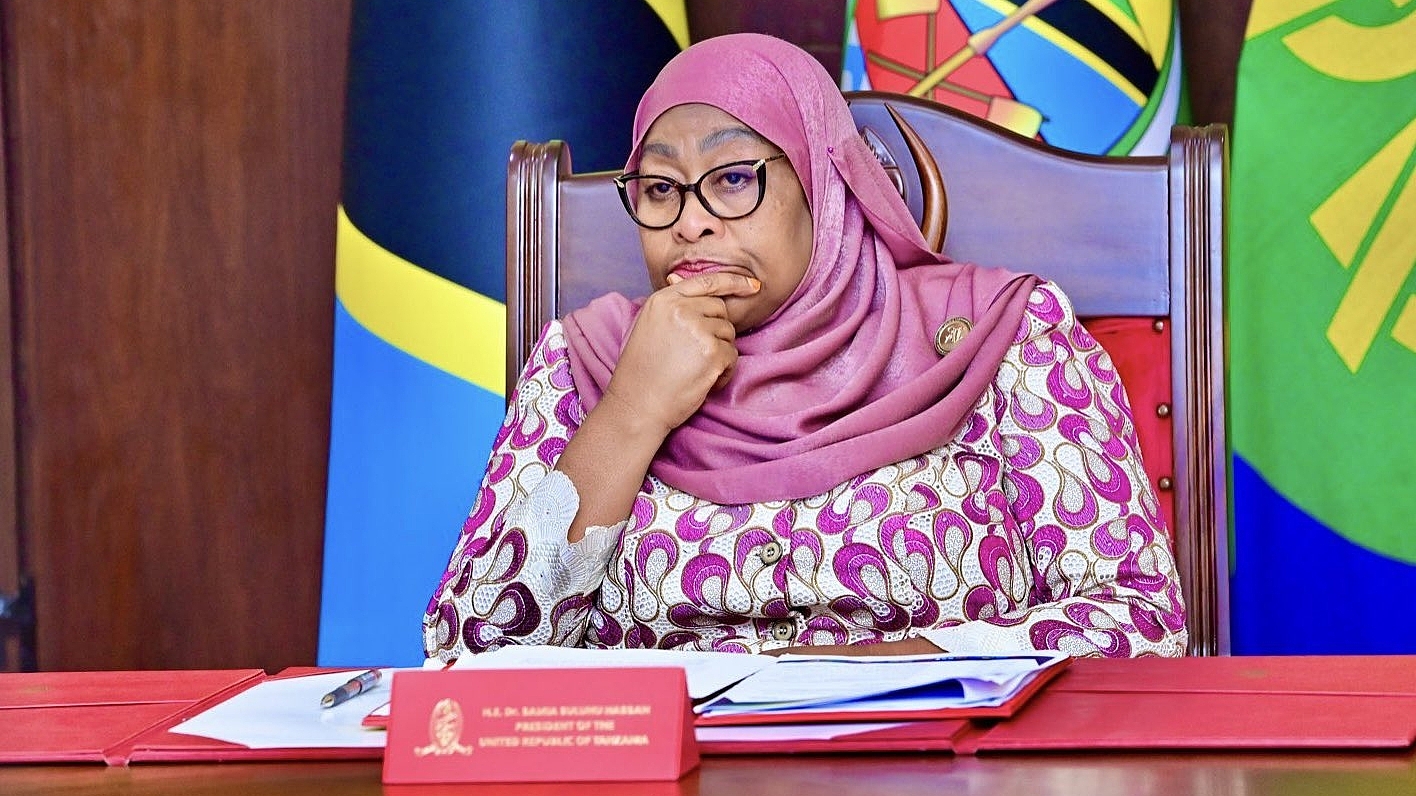‘Idi Amin Mama’: The Internet’s new dictator or just digital drama?

Tanzanian President Samia Suluhu Hassan. Courtesy photo
In a sharp twist of irony, Tanzanian President Samia Suluhu Hassan--once celebrated as a trailblazer for women in leadership--has found herself rebranded by Kenyan social media users as “Idi Amin Mama.”
The trending label is not just provocative; it’s a digitally minted accusation of authoritarianism that compares the East African leader to one of the continent’s most feared dictators.
But why "Idi Amin Mama"? And what does it say about Suluhu’s current standing on the regional stage?
Idi Amin Dada, Uganda’s self-proclaimed "Last King of Scotland," ruled the country from 1971 to 1979 in a regime that was as erratic as it was brutal. His reign was marked by mass killings—an estimated 300,000 Ugandans died—political repression, expulsion of Asians, and a cult of personality that made headlines globally. He referred to himself as "Dada," meaning sister, in one of many bizarre self-stylizations.
Fast forward to 2025, and Samia Suluhu, Tanzania’s first female president, is being satirically elevated (or downgraded) to “Mama” Idi Amin—a motherly counterpart whose critics argue is wielding power with equal, if not more, suppressive force.
The online moniker began trending on X (formerly Twitter) following Suluhu’s government’s hardline responses to domestic dissent and regional political controversies. Kenyan users, in particular, were quick to adopt and spread the name, spurred by recent reports of Tanzanian citizens being arrested for mocking the president online.
A post by a Kenyan user read: “Samia Suluhu… Idi Amin Mama… the worst dictator ever.”
Another chimed in: "Rais Samia Suluhu ❌ Idi Amin Mama ✓ Kenyans single-handedly liberating Africans one country at a time."
The nickname took root amid warnings from Tanzanian authorities that those found insulting the president online could face up to eight(8) years in jail or a fine of Tsh2 million. For many in the region, this legal threat echoed the repressive tactics of Amin’s Uganda--silencing dissent through fear, rather than discourse.
While the phrase “Idi Amin Mama” may have started as internet satire, it taps into real anxieties about alleged shrinking democratic space in Tanzania. Under President Suluhu, there have been growing concerns about media freedom, political opposition crackdowns, and the criminalization of online speech.
Critics argue that Suluhu, who initially presented a more conciliatory tone after succeeding the late President John Magufuli in 2021, has gradually reverted to authoritarian playbooks. Arrests of critics, curbs on political rallies, and enhanced surveillance have all added fuel to the fire.
The irony? Suluhu was once seen as a democratic breath of fresh air after Magufuli’s controversial pandemic denialism and state control. Now, even the casual use of satire on social media has become a legal risk for Tanzanians.
To be clear, Suluhu’s presidency has not (yet) reached the gruesome extremes of Idi Amin’s. There are no known mass graves, nor has she declared herself lifelong president. But in a continent still healing from the wounds of dictatorship, even the echo of autocracy rings loud—and online platforms have become the mirrors where those echoes are reflected, magnified, and meme-ified.
What makes “Idi Amin Mama” sting is not just its crudeness, but its believability. It suggests that for many Africans, especially the digitally savvy youth, democracy is always just one misstep away from dictatorship.
Whether fair or exaggerated, the nickname carries a message: in the age of social media, the court of public opinion can elevate—or erase—legacies faster than any government decree.
Editor’s Note: This story examines online discourse and does not endorse any defamatory language. Leaders deserve criticism, not caricature--but in the digital age, the two are rarely apart.

Be the First to Comment